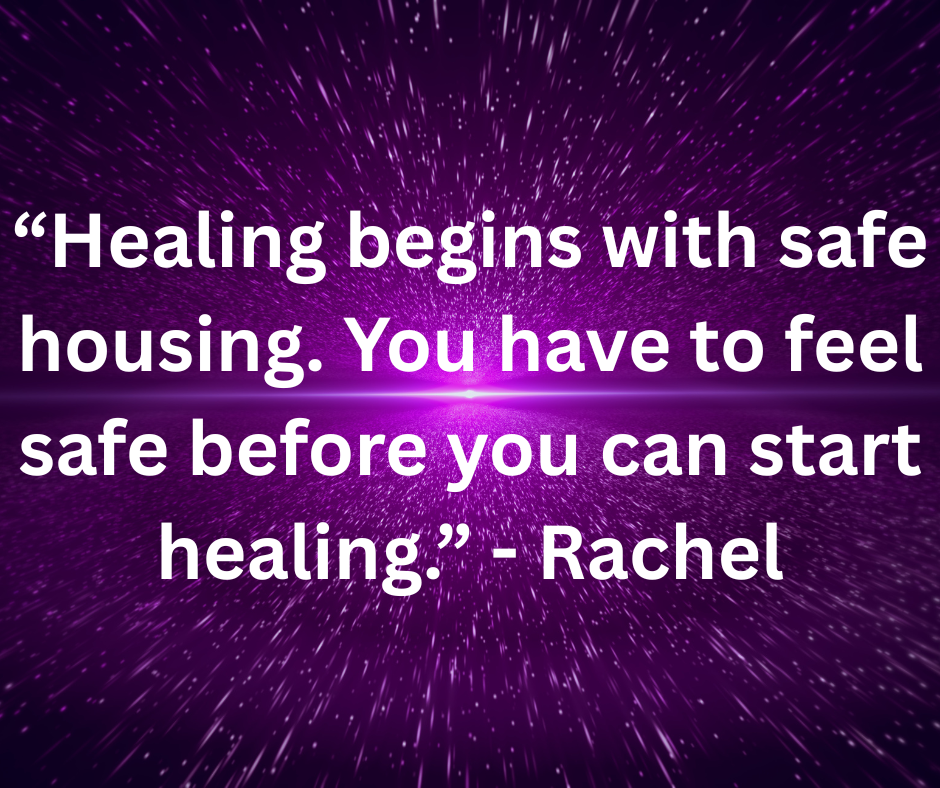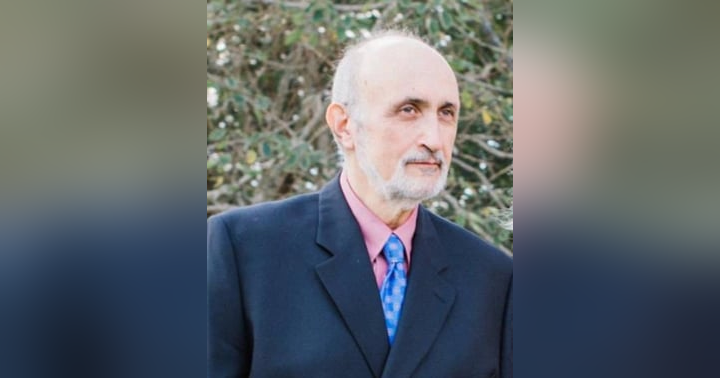
Today, we're diving deep into a topic that’s absolutely critical for women seeking lasting recovery from addiction: the power of safe housing. In our latest podcast episode, Podathon For Recovery: Rachel on Sober Living, Healing, and Hope, we spoke with Rachel from Rage Against Addiction (RAA) about their incredible work in providing just that – a safe and supportive environment where women can rebuild their lives. This blog post expands on that conversation, exploring the vital role safe housing plays, the structure and approach of RAA's programs, and how you can get involved. We’ll also touch on the costs associated with providing these essential services and why your support is so important. If you're passionate about recovery and making a tangible difference in someone's life, keep reading!
The Critical Need for Safe Housing in Addiction Recovery
Addiction recovery is a multifaceted process that requires addressing physical, emotional, and psychological needs. For many women, one of the most significant barriers to successful recovery is the lack of a safe and stable living environment. Returning to a previous living situation riddled with triggers, negative influences, or even active substance use can quickly derail progress and lead to relapse. Safe housing, often in the form of sober living homes, provides a structured and supportive environment free from these dangers.
The need for safe housing extends beyond simply avoiding triggers. It's about creating a space where individuals can focus on their recovery without the added stress of homelessness, financial instability, or exposure to violence. For women, in particular, the risk of violence and exploitation can be significantly higher, making safe housing an even more critical component of their recovery journey. A safe home provides a foundation of stability, allowing women to address underlying issues, develop healthy coping mechanisms, and build a life free from addiction.
Furthermore, safe housing facilitates access to essential resources. Sober living homes often connect residents with treatment services, counseling, job training, and other support systems that are vital for long-term sobriety. This integrated approach addresses the multiple dimensions of recovery, increasing the likelihood of sustained success. Without a safe and supportive living environment, many individuals find it nearly impossible to maintain their commitment to recovery.
Rage Against Addiction: From a Mother's Mission to a Haven for Healing
Rage Against Addiction (RAA) embodies the transformative power of a mother's love and dedication. Founded by Wendy Beck, RAA began as a personal mission to combat the devastating impact of addiction. Driven by her own experiences and a deep desire to help others, Wendy established RAA with the vision of creating a safe and supportive haven for women seeking recovery. What started as a grassroots effort has grown into a thriving organization with three sober living homes in Harford County, Maryland, serving women from across the United States.
The growth of RAA is a testament to the organization's commitment to providing high-quality, compassionate care. The journey from a single home to a network of three reflects the ever-growing need for safe housing and the effectiveness of RAA's program. Each home is designed to be a welcoming and nurturing environment, providing residents with a sense of belonging and the support they need to rebuild their lives. The organization's focus on creating a home-like atmosphere sets it apart, fostering a sense of community and shared purpose among residents.
RAA's success is also due to the dedication of its staff and volunteers. Individuals like Rachel, the Program Director, bring their own experiences and expertise to the organization, creating a culture of empathy and understanding. The team at RAA is deeply committed to empowering women to achieve long-term sobriety and live fulfilling lives. They provide not only a safe place to live but also the tools and resources necessary for sustained recovery.
The RAA Program Structure: A Foundation for Long-Term Sobriety
RAA's program is thoughtfully structured to provide a solid foundation for long-term sobriety. A key component is the initial 30-day "blackout" period. During this time, new residents focus on stabilization, healthcare, and taking essential steps toward employment. This period is designed to help women acclimate to their new environment, establish a routine, and begin addressing their immediate needs. The blackout period also includes mandatory engagement with 12-step programs, fostering a connection to a broader recovery community.
Engagement with 12-step programs is a cornerstone of the RAA approach. Residents are encouraged to find a sponsor, attend regular meetings, and actively participate in the step work. This provides a framework for self-reflection, accountability, and personal growth. The 12-step philosophy promotes a sense of connection and shared experience, reducing feelings of isolation and fostering a strong support network.
Beyond the 30-day acclimation, RAA offers a range of workshops and wellness activities designed to support holistic recovery. These include yoga, meditation, sound bath therapy, and even goat yoga, promoting physical and mental well-being. Workshops on budgeting, resume writing, and interview skills equip residents with the practical tools they need to achieve financial independence. This comprehensive approach addresses the multiple dimensions of recovery, increasing the likelihood of sustained sobriety and a fulfilling life.
The Eight Dimensions of Wellness: A Holistic Approach to Recovery
Recognizing that recovery encompasses more than just abstaining from substances, RAA integrates the Eight Dimensions of Wellness into its programming. This holistic approach addresses the interconnected aspects of well-being, fostering a balanced and sustainable recovery journey. The Eight Dimensions include:
- Emotional Wellness: Developing coping skills, managing stress, and expressing emotions in healthy ways.
- Environmental Wellness: Creating a safe and supportive living environment that promotes well-being.
- Financial Wellness: Managing finances responsibly, achieving financial stability, and reducing financial stress.
- Intellectual Wellness: Engaging in lifelong learning, expanding knowledge, and fostering creativity.
- Occupational Wellness: Finding meaningful work that provides a sense of purpose and fulfillment.
- Physical Wellness: Maintaining a healthy lifestyle through exercise, nutrition, and proper sleep.
- Social Wellness: Building and maintaining healthy relationships, fostering a sense of belonging, and engaging in community activities.
- Spiritual Wellness: Connecting with one's values, beliefs, and sense of purpose.
By addressing each of these dimensions, RAA helps residents develop a well-rounded and resilient approach to recovery. The organization’s commitment to holistic wellness reflects a deep understanding of the complexities of addiction and the importance of addressing all aspects of an individual's life.
The Power of Community: RAA's Alumni Network and Success Stories
The sense of community at RAA extends beyond the walls of its sober living homes. The organization boasts a thriving alumni network, providing ongoing support and connection for graduates. This network is a powerful resource for women who have completed the program, offering a sense of belonging, encouragement, and practical assistance.
The alumni network facilitates monthly shares, where graduates can connect with one another, share their experiences, and offer support. Alumni also volunteer their time, providing rides to appointments, mentoring current residents, and participating in RAA events. This active involvement not only supports the organization but also reinforces the alumni's own commitment to recovery.
The success stories emerging from RAA are truly inspiring. One standout example is a woman who came to RAA struggling with addiction and the loss of custody of her children. Through the support of RAA's program and the alumni network, she achieved sustained sobriety, regained custody of her children, and became a valued member of the RAA board. This story exemplifies the transformative power of safe housing, comprehensive support, and a strong community.
The Real Costs of Safe Housing: Why Your Support Matters
Providing safe housing and comprehensive support services comes with significant costs. RAA relies on the generosity of donors to cover essential expenses such as drug testing, linens, utilities, repairs, and appliances. These seemingly small items are crucial for maintaining a safe, dignified, and comfortable living environment for residents. Recurring monthly gifts are particularly valuable, providing a stable and predictable source of funding that allows RAA to plan for the future and meet the ongoing needs of its residents.
Drug testing is a critical component of RAA's program, ensuring a safe and sober environment for all residents. Clean linens and comfortable furnishings contribute to a sense of dignity and well-being. Utilities and repairs are essential for maintaining the physical infrastructure of the homes. Appliances such as refrigerators and washing machines are necessary for daily living. Without adequate funding, RAA would struggle to provide these basic necessities, compromising the quality of its program and the safety of its residents.
By supporting RAA, you are directly impacting the lives of women seeking recovery. Your donation helps provide a safe place to live, access to essential resources, and the support they need to rebuild their lives. Every contribution, no matter the size, makes a difference.
How to Get Involved: Upcoming Events and Fundraising Initiatives
There are numerous ways to get involved with RAA and support its mission. One of the most popular events is the annual Memory Walk & Recovery Run, which raises awareness and funds for RAA's programs. The organization also hosts a Fall Bingo event and participates in the Pampered Chef program, where a portion of the proceeds from sales is donated to RAA. The Christmas Kids initiative provides holiday support for families impacted by addiction, bringing joy and hope during a difficult time.
RAA is always seeking corporate sponsorships to help sustain its programs and expand its reach. Corporate sponsors play a vital role in supporting RAA's mission and making a tangible difference in the lives of women seeking recovery. In addition to financial support, RAA welcomes volunteers to assist with various tasks, from mentoring residents to helping with fundraising events. Your time and talents are invaluable to the organization.
To learn more about upcoming events, fundraising initiatives, and volunteer opportunities, visit the RAA website or contact the organization directly. Your involvement, whether through financial support, volunteering, or simply spreading awareness, can help RAA continue its vital work and empower women to achieve lasting recovery.
Safe Housing as a Cornerstone of Sustainable Recovery
In conclusion, safe housing is not merely a roof over one's head; it is a fundamental cornerstone of sustainable addiction recovery, especially for women. It provides the necessary stability, security, and support that allows individuals to focus on healing and rebuilding their lives. Rage Against Addiction's commitment to providing safe, sober living environments, coupled with their holistic approach to recovery and strong community support, makes a profound difference in the lives of the women they serve.
As we discussed in our podcast episode, Podathon For Recovery: Rachel on Sober Living, Healing, and Hope, the work RAA does is essential, and it's fueled by the generosity of individuals like you. By supporting RAA, you're not just donating to a cause; you're investing in a brighter future for women seeking recovery and helping to break the cycle of addiction. Thank you for taking the time to learn about the power of safe housing and the incredible work of Rage Against Addiction. Together, we can make a difference.










